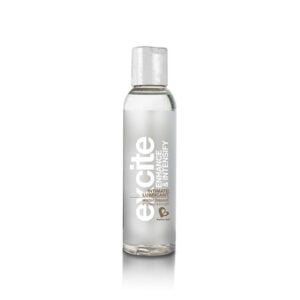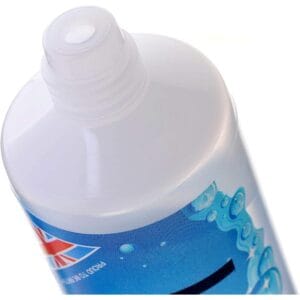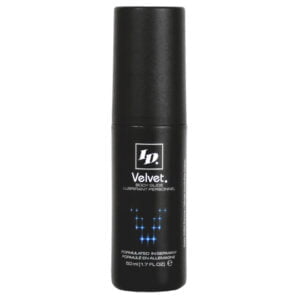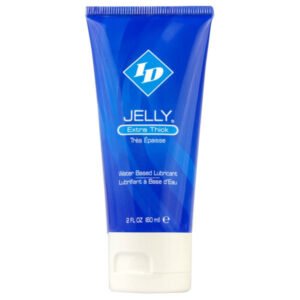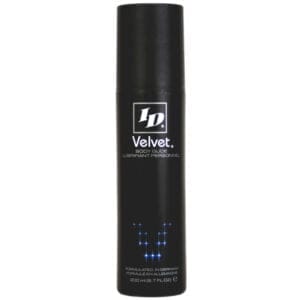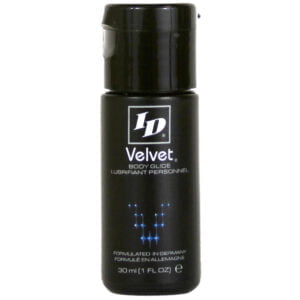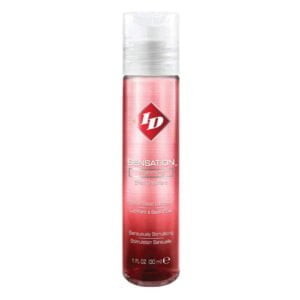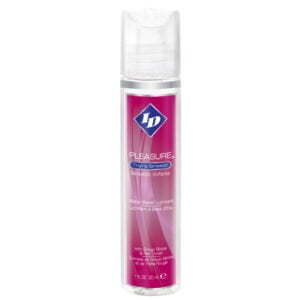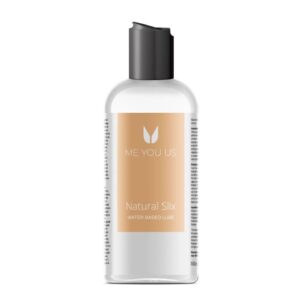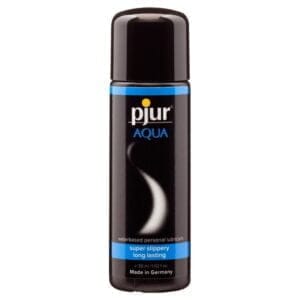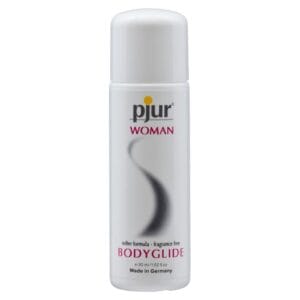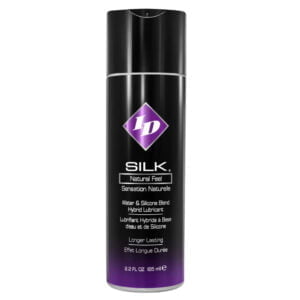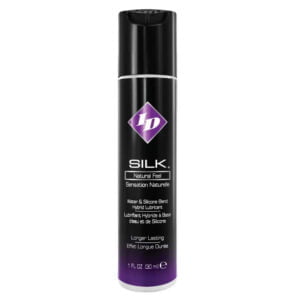0
£ 0.00
0
Shopping cart (0)
Subtotal: £ 0.00
Spend £ 149.00 to get free shipping!
Congratulations! You've got free shipping.
FREE worldwide shipping on orders £149+
FREE UK shipping on orders £49+ and FREE worldwide shipping on orders £149+
Go Shopping
FREE UK shipping on orders £49+ and FREE worldwide shipping on orders £149+
Go Shopping
Water-based lubricants are popular for their versatility and ease of use. They are compatible with most toys and condoms, making them a reliable choice for many. For those with more sensitive skin, products like Sliquid H2O are recommended for their gentle formula. Additionally, silicone-based lubricants offer long-lasting smoothness, which is ideal for those looking for something that won't require frequent reapplication.Exploring various options can lead to better comfort and enjoyment during intimate moments. Whether you're looking for something hydrating like Goodparts Organic Lube or a robust choice like Maude Shine, the key is to find one that meets your unique preferences. Take the time to understand what each type offers, ensuring your intimate experiences are both pleasurable and worry-free.
Understanding Lubricant Types
To enhance comfort during intimate moments, choosing the right lubricant is essential. The type of lubricant can affect compatibility with sex toys, condoms, and personal preferences. It is important to understand your options so you can make a choice that best suits your needs.Water-Based Lubricants
Water-based lubricants are a popular choice due to their versatility. They are safe to use with condoms and all types of sex toys. These lubes are easy to clean up, as they wash off with water and don't leave stains on fabrics. One downside is that they may dry out faster than other types, so you might need to reapply during longer sessions.Look out for ingredients like glycerin and parabens, which can irritate some users. Opt for formulations with simple, gentle ingredients to mimic natural lubrication. They are perfect for those who want a light, non-greasy feel.Silicone-Based Lubricants
Silicone-based lubes offer long-lasting slips and are ideal for water activities, as they won't wash off easily. They feel silky and smooth, providing a different sensation compared to water-based options. Compatibility is crucial since they can damage silicone sex toys, so avoid using them together to prevent degradation.These lubricants typically don't need frequent reapplication. However, they might be harder to wash off and can stain, requiring soap and water for complete removal. Choose them when longevity is your priority, and you're not using silicone toys.Oil-Based Lubricants
Oil-based lubricants provide a thick, rich texture. They are suitable for those looking for a substantial, luxurious feel. These lubes are not compatible with latex condoms, as they can cause them to break. Instead, use them with polyurethane condoms or for manual activities.Natural oils like coconut or jojoba are common in this category, offering moisturising properties. However, they can stain fabrics and require thorough cleaning. Due to potential residue, they're not recommended for those prone to infections.Hybrid Lubricants
Hybrid lubricants combine the best of both worlds, usually mixing water and silicone. This blend offers a balance of long-lasting glide without the sticky residue. They're suitable for those who want extended moisture without giving up the easy cleanup as cleanup with water-based lubes.Check the ingredient list to ensure there's no irritation risk for you. They work well with most condoms but verify compatibility with specific sex toys beforehand. Hybrids cater to various needs, bridging gaps between water, silicone, and oil-based options.Key Features for Comfort and Safety
When choosing a lubricant, consider ingredients that might irritate, formulations suitable for sensitive skin, and products that maintain a natural pH balance. These factors ensure comfort and safety during use.Ingredients to Avoid
To maintain comfort and safety, avoid lubricants with glycerin and parabens. Glycerin can lead to yeast infections, particularly in individuals prone to vaginal health issues. Parabens are preservatives that may cause skin irritation or hormonal imbalance.When selecting a product, look for those free from phthalates and nonoxynol-9, which can be harsh on sensitive skin. Fragrance-free options reduce the chance of allergic reactions. Products labelled as natural or organic often contain fewer irritating ingredients, enhancing comfort during use. Choose wisely for a pleasant experience.Hypoallergenic and Sensitive Skin Formulations
If you have sensitive skin or allergies, opt for lubricants labelled as hypoallergenic. These formulations are less likely to irritate. Hypoallergenic lubricants often omit common allergens such as fragrances and parabens, making them ideal for maintaining vaginal health.Look for products specifically designed for sensitive skin to prevent irritation and dryness. Lubricants with natural and organic ingredients can add an extra layer of safety for those with skin sensitivities. Always perform a patch test on a small area of skin to confirm compatibility before full application.pH Balance and Osmolality
The pH balance of a lubricant is crucial for vaginal health. A product with a pH level that closely matches your body's natural pH helps prevent irritation and discomfort. Aim for pH-balanced options to support a healthy vaginal environment.Osmolality is another important factor. Low-osmolality lubricants can reduce the risk of irritation and discomfort compared to high-osmolality options, which may disrupt natural moisture levels. Check labels for information about osmolality and choose products compatible with latex condoms for safe and enjoyable use. Prioritise comfort and compatibility when selecting a lubricant for intimate moments.Enhancing Intimacy with Specialised Lubricants
Choosing the right lubricant can make a big difference in your intimate experiences. Depending on your needs, there are several options available that can improve comfort and pleasure during different types of intimacy.Lubricants for Sexual Wellness
Using personal lubricants can greatly enhance your sexual wellness. These are designed to reduce friction, making intimacy smoother and more enjoyable. Water-based lubes are popular for their versatility and easy cleanup. Thcleanupsuitable for most activities, including vaginal use and with sex toys.Silicone-based lubes are ideal for longer sessions because they do not dry out as quickly. They are also great for water play since they are not easily washed away. However, they might not be safe for use with silicone toys.Natural and organic options like aloe vera and coconut oil are becoming increasingly popular. Aloe vera is known for its soothing properties, while coconut oil provides a moisturising touch. Choosing a lubricant that contains vitamin E can add an extra layer of skin nourishment, supporting your overall sexual wellness.Formulas for Different Types of Intimacy
Different types of intimacy may require specialised formulas. For anal sex, a thicker consistency and longer-lasting lubricant, like silicone-based options, may be beneficial. These help reduce any discomfort that might occur due to a lack of natural lubrication.When opting for a lube for sex toys, make sure it is compatible with the toy material. Most sex toys work well with water-based lubricants, which do not cause damage to silicone toys.If you're using lubricant as a massage oil, consider multi-purpose formulas that cater to both intimate use and massages. Many organic lubes with natural ingredients work well for this. Whatever your preference, ensure the lubricant meets your specific requirements for a more enjoyable experience.Frequently Asked Questions
Choosing the right lubricant can enhance comfort and reduce irritation. Understanding the benefits of different types of lubricants can help you make informed decisions for your needs.What types of personal lubricants are best for sensitive skin?
For sensitive skin, opt for lubricants free from fragrances, parabens, and glycerin. Products without these irritants offer a gentler experience. Many people find success with water-based lubricants specially designed for sensitive users. Checking product labels helps ensure your choice is kind to your skin.Can natural oils be used safely as intimate lubricants?
While some natural oils like coconut oil are commonly used, they can weaken latex condoms, raising the risk of breakage. If you're considering natural oils, they might be more suitable for individuals not using latex-based protection. Always test a small amount on your skin before wider use to check for adverse reactions.What are the advantages of water-based lubricants over silicone-based ones?
Water-based lubricants are easy to clean and generally safe to use with all types of condoms and sex toys. They're less likely to stain fabrics, making them practical for regular use. On the other hand, silicone-based lubricants provide a longer-lasting, smooth feel, ideal for instances where longevity is preferred, such as in water environments.How should one choose a lubricant for use with condoms to ensure safety and pleasure?
When pairing with condoms, water-based lubricants are typically the safest option as they don't interfere with latex or other materials. Silicone-based options also work well, but ensure the specific lubricant is compatible with your chosen condom type. Avoid oil-based products, which can degrade latex, reducing its effectiveness.Are there any intimate lubricants that can also enhance comfort during menopause?
Lubricants specially formulated for menopausal women focus on providing extra moisture and comfort. Look for products advertised specifically for menopausal needs, as they cater to hormonal changes that can affect vaginal dryness. These may include added hydrating ingredients, easing discomfort during intimate moments.What ingredients should be avoided in personal lubricants to prevent irritation?
To minimise irritation, avoid lubricants containing alcohol, parabens, and glycerin. These can disrupt natural pH levels or cause skin sensitivity. It's also wise to avoid artificial dyes and strong fragrances. Reading ingredient lists carefully ensures you choose a product that supports your body's natural balance.Delivery Policy
At the moment we deliver only to a few countries. Click on the icon above or check our FAQ section.
24/7 Support Center
You can contact our support team by sending us an email or by making a telephone call!
Categories
- Show All Categories
- Bondage (606)
- Condom (54)
- Hen And Stag Nights (10)
- Novelty (59)
- Sex Games (37)
- Sex Lubricant Product (179)
- Sex Toys (2277)
- Sexy Lingerie (554)
- Sweet Treats (9)
- Sex Lubricant Product (179)
- Lubricant (72)
- Anal Lubricant (11)
- Flavoured Lubricant Blowjob (25)
- Bath and Massage (19)
- Personal Hygiene (52)
Price Range
Brands
- Empowered Products (2)
- Exs Condoms (3)
- Gun Oil (4)
- Herrco (1)
- ID Lube (36)
- Intimate Organics (2)
- Liquid Silk (3)
- Lubido (4)
- Me You Us (2)
- Pjur Lubricants (7)
- Prowler (2)
- Rocks Off Ltd (1)
- Skins Condoms (1)
- XR Brands (1)
Size
Colours
- Clear (1)




